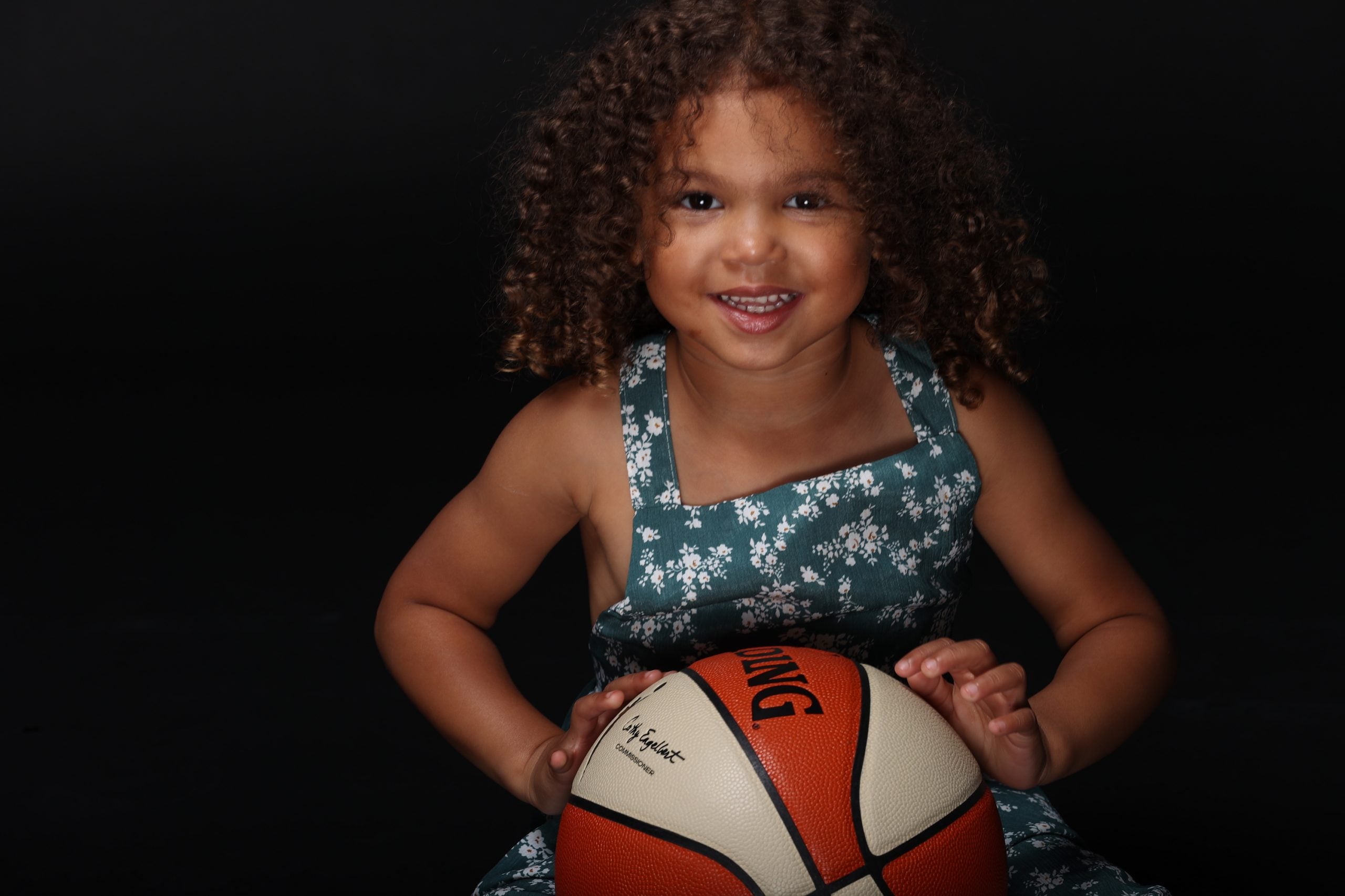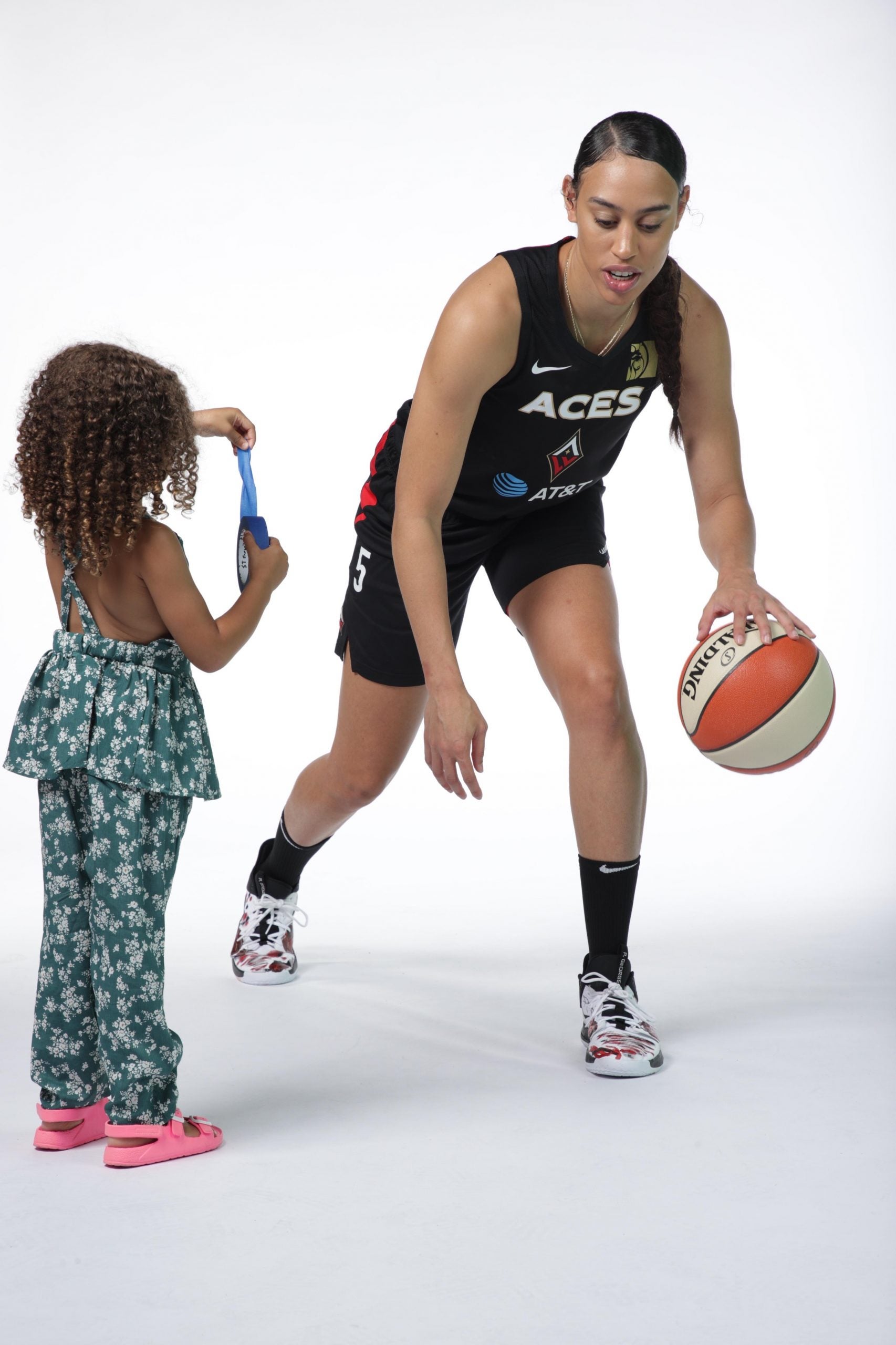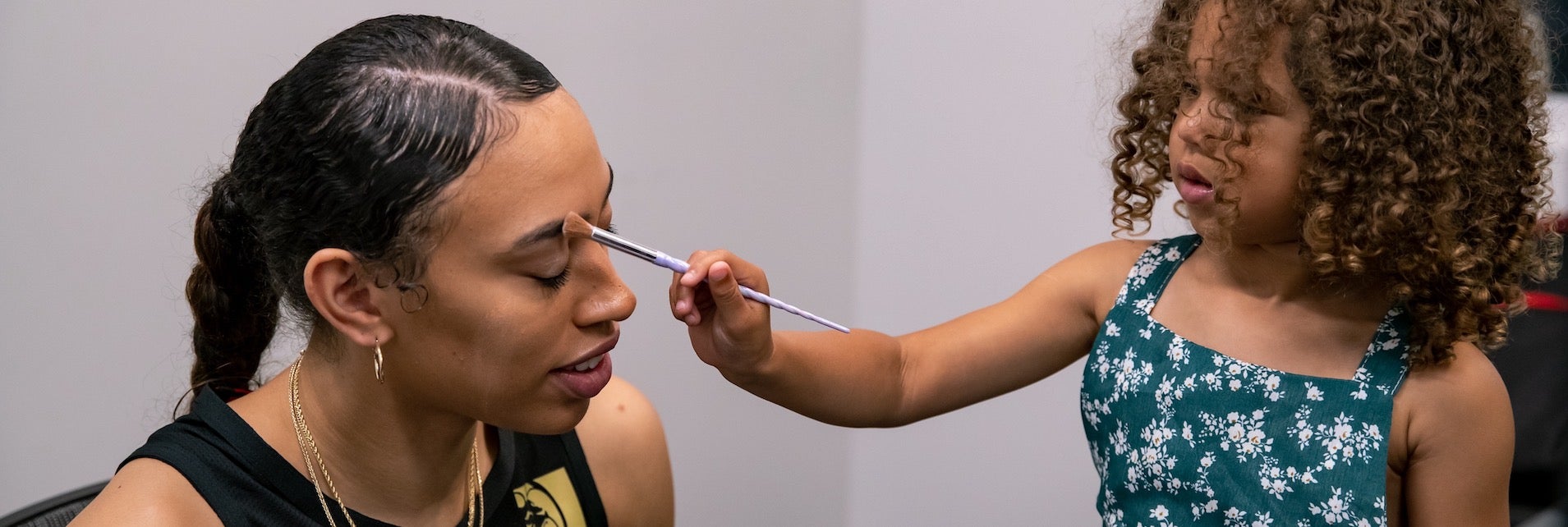Pivot is a word that WNBA star Dearica Hamby has heard often in her career. The Las Vegas Aces forward has been pivoting on and off the court since she stepped foot in the league as a rookie in 2015. She hasn’t looked back since. Even after giving birth to her beautiful daughter Amaya, the 26-year-old returned to the game stronger than ever, becoming the WNBA’s 2019 Sixth Woman of The Year.
Hamby, like many working moms this year, has had life flipped upside down due to the unpredictability of COVID-19 spreading across the world, impacting how we all work, travel, communicate, live and especially parent. The WNBA star has been living in a “bubble” with her colleagues these past few weeks at IMG Academy in Bradenton, Florida with her 3-year-old daughter during one of the most challenging times in history where she’s still expected to bring her A-game.
“It doesn’t feel real. I remember leading up to talks of the season happening again, I thought we weren’t going to play because of the circumstances,” Hamby tells ESSENCE. “Being here in the bubble has been a real adjustment.”
The “bubble,” or the “wubble” as its being called in the WNBA, involves a rigorous schedule where players are not only practicing for several hours out of the day, but getting tested for COVID -19 daily. The atheletes must wear a mask when walking around the facility to avoid possible transmission of the virus and they aren’t allowed to see anyone who isn’t inside the bubble, in hopes that the league will play out 22 games. The new normal for these players is a real-life look into what the future holds for many working moms, who are hoping to bring their young children back into the world as safely as possible.
“My daughter is almost 3-and-a-half and she’s a super social person. She’s struggling with being in the bubble and being restricted from the things she can do. She’ll run-up to some of the employees here at IMG and hug them and they’ll say, ‘Aww, you can’t do that,’” Hamby shares. “And I have to remind her: ‘Amaya the virus.’ It’s hard because she can’t be stimulated here, we can’t do normal things we’d do at home. She can’t play in her yard and freely jump in her jumpy house.”
Hamby knows being in the bubble has been hard for Amaya. It’s showing itself physically. “I do notice that since being here she’s been more easily irritated, tossing and turning at night. I think it’s just everything going on and being restricted,” she adds. “She’s super smart so she enjoys being challenged and it’s hard to do that in this environment.”

Like most working moms in the pandemic, Hamby is feeling the brunt of trying to balance it all and give 100% to her job and her daughter. Thankfully, she has support — a rarity for working moms in the U.S. who have had to suspend childcare while the nation fails at battling the virus. “I try not to be around her unless I can be fully engaged. I try to separate the two. I don’t like to give her half energy and I’m thankful my mom is here to help,” she says.
Aside from dealing with the stress of the WNBA returning to a vastly different schedule, a tiring new routine of living in the bubble as a parent, Hamby has also had to deal with the weight of two pandemics. Black Americans have been suffering from not only the disparities in relief for COVID-19, but racial trauma as well.
“Early on I was a little bit more involved and tuned in with everything going on across the country, but as time has gone on and the season has come it’s been more important for me to tune out of it and tune in to the game,” she admits. “I’m a super-emotional person, I wear my emotions on my sleeve and I’m an empath so it’s hard to invest my energy into what’s happening right now.”
“I choose to donate and sign petitions. When the protest was happening, I didn’t protest because I was in Atlanta and I have a 3-year-old daughter to come home to and keep safe who doesn’t understand racial injustices or police brutality right now.”

Even with the world seemingly on fire due to these unique challenges, Hamby still has her eyes set on winning a championship. “I think we can still shoot for a championship. I’m very well capable of being a starting player and this is an opportunity for people to step up. Honestly, it’s going to come down to those in the best shape and who’s going to last the longest,” she says. “The way a woman’s body works is if you take too much time off it becomes rather difficult.”
Hamby, whose still in the prime of her career, is up to the challenge on and off the court. In fact, she hopes that wayyyy down the line when people remember what she did in the WNBA, they’ll remember her hard work.
“When people talk about my legacy I want them to say that I played my ass off no matter the circumstances and that I love being a mom,” Hamby says. “Every opportunity I get, I treat it like it’s my last. Even with parenting, I don’t take any moment for granted.”
Mia J. Davis is the founder of Color Vision, an organization dedicated to helping creative Black women go from desire to achievement in their careers and businesses.

